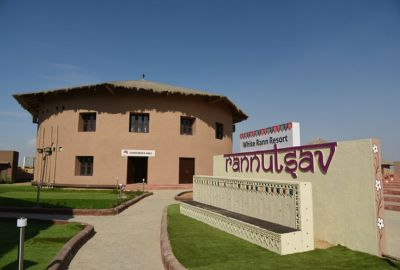The Rann Utsav is one of India’s most vibrant cultural festivals, celebrated each year in the stunning white desert of Kutch, Gujarat. Often called the “White Desert Festival”, it draws visitors worldwide to enjoy folk music, dance, handicrafts, authentic cuisine, and the magical desert under a full moon.
If you’re planning to attend, understanding the Rann Utsav timing, booking details, and travel essentials is key. This guide will help you explore Rann of Kutch tour packages and plan a truly memorable trip.
What Makes Rann Utsav Special?
The Rann Utsav is not just a festival – it is a celebration of culture, art, and tradition. Spread over several weeks, it showcases the soul of Kutch. Visitors can enjoy vibrant folk dances like Garba and Dandiya, listen to traditional Kutchi music, and explore a wide range of handicrafts made by local artisans.
What makes it even more unique is its location – the Rann of Kutch. This salt desert stretches endlessly and looks magical, especially under moonlight. The sight of the white desert glowing under the full moon sky is something that leaves a lasting memory.
Along with cultural experiences, the festival offers adventure activities, shopping, and local delicacies. From luxury tents to rustic village life, it combines tradition with comfort.

Rann Utsav Timing: Best Time to Visit
One of the most important things to know before planning your trip is the Rann Utsav timing. The festival usually starts in November and continues till February. Each month offers something different, so your choice will depend on what kind of experience you are looking for.
Here is a simple guide:
| Month | Weather/Experience | Why Visit? |
| November – December | Pleasant, cool evenings | Opening season, perfect for photography |
| January | Cold nights, cultural peak | Republic Day celebrations, folk programmes |
| February | Mild warmth, less crowded | Good for shopping and quieter experiences |
If you want to see the desert at its most stunning, plan your visit on a full moon night. The glowing salt desert under silver moonlight is a sight you should not miss.
How to Reach the Rann of Kutch
Reaching the Rann Utsav is quite simple, thanks to good connectivity:
- By Air: The nearest airport is in Bhuj, around 80 km from the festival site. From there, you can take a taxi or shuttle.
- By Train: Bhuj also has a railway station with regular trains from major cities in Gujarat and beyond.
- By Road: Well-connected highways make it easy to drive from Ahmedabad, Rajkot, or Bhuj to Dhordo, where the festival is held.
Most Rann of Kutch tour packages include transfers, so you don’t need to worry about transport.
Accommodation Options
Accommodation at the Rann Utsav is an experience in itself. The famous Tent City in Dhordo offers luxury tents with modern amenities such as attached bathrooms, heating, dining areas, and cultural programmes every evening.
If you prefer something more local, there are resorts and homestays in Dhordo and nearby villages, which give you a closer look at Kutchi life. For budget travellers, Bhuj city has hotels and guesthouses from where you can take day trips to the festival site.
Whichever option you choose, book early because places fill up fast during the season.
Rann of Kutch Tour Packages: What They Include
If you want to save time and enjoy a hassle-free trip, booking Rann of Kutch tour packages is the best option. Most packages include:
- Accommodation in luxury tents or resorts.
- Meals – usually breakfast, lunch, and dinner with traditional Gujarati and Kutchi dishes.
- Access to cultural shows and adventure activities.
- Guided sightseeing tours to nearby attractions like Kala Dungar and handicraft villages.
- Transport from Bhuj to Dhordo and back.
The ideal duration for a tour package is two to three nights, giving you enough time to enjoy the desert, experience cultural events, and explore nearby sites. Early booking often ensures better prices and more choices.
Things to Do at Rann Utsav
The Rann Utsav is filled with activities for every type of traveller. Here are some of the highlights:
- Adventure Activities: Try camel rides across the desert, ATV biking, or even paramotoring for an aerial view of the white desert.
- Cultural Experiences: Enjoy traditional folk music and dance performances every evening. Watch artisans at work and buy beautiful handicrafts, textiles, and jewellery.
- Food: Savour Kutchi dishes like bajra rotla, khichdi, and buttermilk, along with sweets and snacks.
- Day Trips: Visit Kala Dungar (Black Hill) for a panoramic view of the desert. Head to Mandvi Beach for a relaxing break or explore the heritage of Bhuj.
Every day brings something new, so it’s worth planning your time well.
Tips for First-Time Visitors
If you are visiting for the first time, these tips will make your experience even better:
- Carry warm clothes because nights in the desert can get very cold.
- Book your accommodation and packages early to avoid last-minute rush.
- Plan your trip around the full moon night if possible.
- Carry some cash since small vendors may not accept digital payments.
- Respect local culture and traditions while interacting with villagers and artisans.

Sample 3-Day Itinerary for Rann Utsav
If you are wondering how to plan your days, here is a simple 3-day itinerary:
- Day 1: Arrive at Bhuj → Transfer to Tent City → Settle into your accommodation → Enjoy the evening cultural programme with folk music and dance.
- Day 2: Start the day with desert adventure activities → Visit local handicraft villages → Experience Kutchi cuisine for lunch → In the evening, watch the sunset at the White Rann and enjoy the magical full moon night.
- Day 3: Visit Kala Dungar and enjoy the view → Explore Bhuj’s palaces, temples, and markets → Shop for souvenirs before your departure.
This plan gives you a balance of adventure, culture, and relaxation.
Conclusion
Visiting the Rann Utsav is more than just a holiday – it is an unforgettable journey into the heart of Gujarat’s culture and traditions. From breathtaking landscapes to lively cultural shows, it is an experience that stays with you forever. By keeping the Rann Utsav timing in mind and booking the right Rann of Kutch tour packages, you can make your trip stress-free and enjoyable.
So, start planning your desert adventure today and let Rann Utsav make your holiday truly magical.



